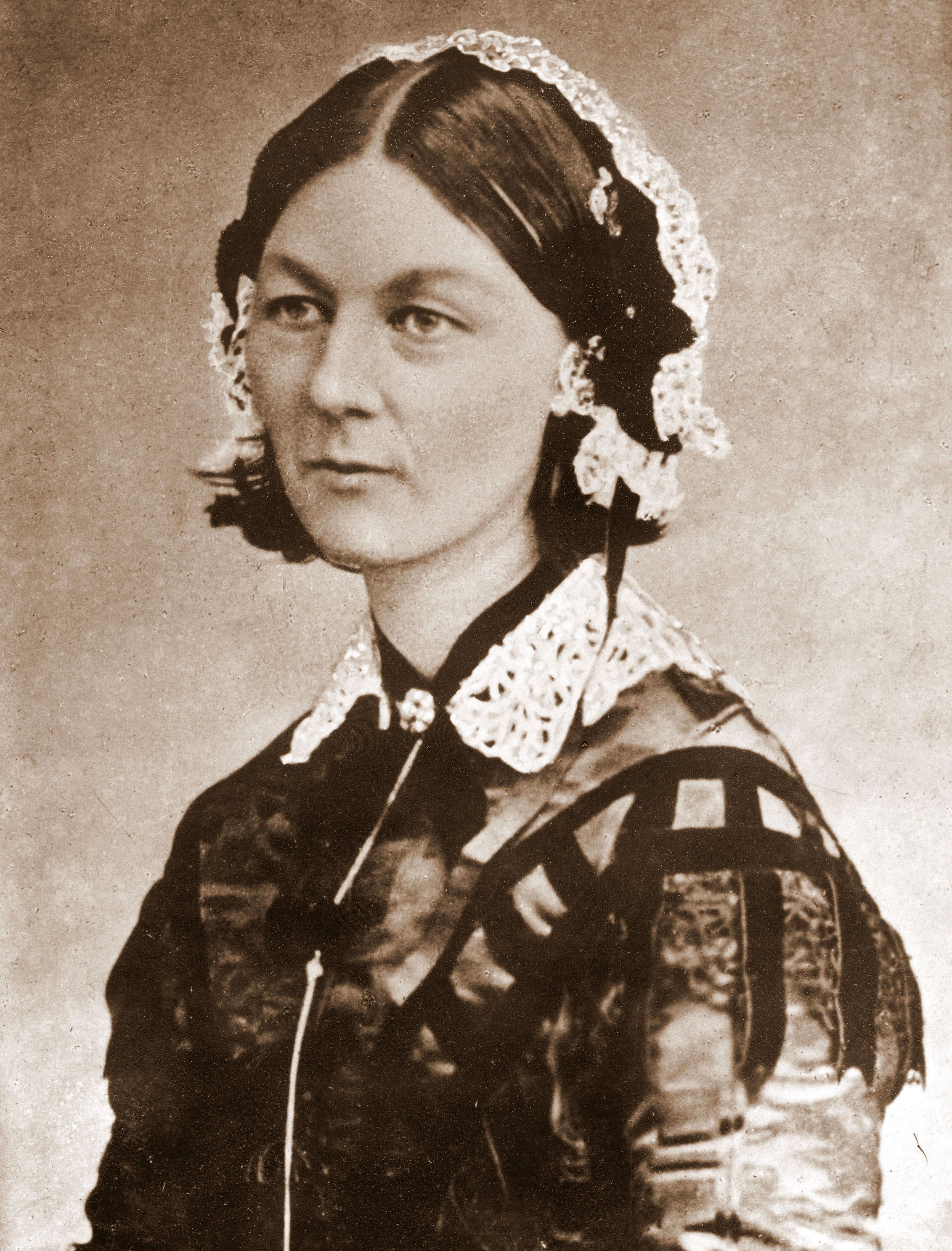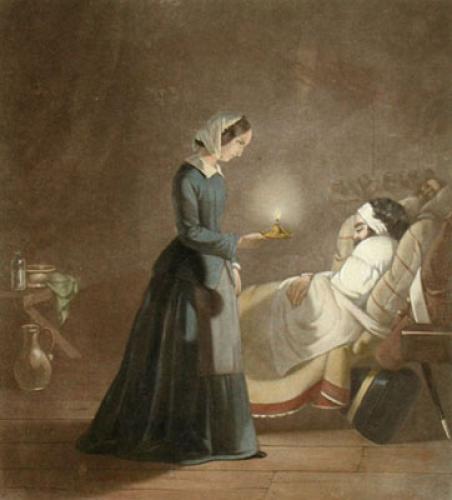Florence Nightingale is considered by many to be a pioneer in the founding of modern nursing. Born into a wealthy family, she lived a long life and did many important things; she is most well-known, however, for her nursing activities during the Crimean War.
 Florence was named for the city in which she was born, Florence, Italy. In 1821, when she was 1, the family moved to England. Her parents wanted her to be a wife and mother, but Florence wanted to be a nurse. She eventually won the support of her parents, and her father provided a large part of her education. She proved particularly adept at mathematics and the sciences.
Florence was named for the city in which she was born, Florence, Italy. In 1821, when she was 1, the family moved to England. Her parents wanted her to be a wife and mother, but Florence wanted to be a nurse. She eventually won the support of her parents, and her father provided a large part of her education. She proved particularly adept at mathematics and the sciences.
On a trip to Rome, in 1847, Florence met Sidney Herbert, a British politician who served two stints as Secretary of War. The two became friends. Nightingale also travelled in Greece and Egypt.
She had a job for a year or so at a medical facility in London. But it was overseas that she would have her most lasting impact.
Great Britain (along with France and Sardinia and the Ottoman Empire) went to war against Russia in 1854. Reports of very bad sanitary conditions in and around the troops' headquarters reached many in Britain. Herbert was Secretary of War and recommended that his friend Florence lead a group of nurses in improving healthcare in Turkey.
 She and her nursing staff (another 38 volunteers, including one of her aunts) arrived in Scutari, near modern-day Istanbul, in November 1854. They set about improving the hospital facilities. Illnesses such as cholera, dysentery, and typhoid were rampant, and soldiers were dying by the thousands. At one point, the death rate in the Scutari hospital was 42 percent. Nightingale's nursing efforts began to have an effect, however, and the death rate was much lower in a short amount of time. She had a habit of making hospital rounds a night, carrying a lamp, and she became known as "The Lady with the Lamp."
She and her nursing staff (another 38 volunteers, including one of her aunts) arrived in Scutari, near modern-day Istanbul, in November 1854. They set about improving the hospital facilities. Illnesses such as cholera, dysentery, and typhoid were rampant, and soldiers were dying by the thousands. At one point, the death rate in the Scutari hospital was 42 percent. Nightingale's nursing efforts began to have an effect, however, and the death rate was much lower in a short amount of time. She had a habit of making hospital rounds a night, carrying a lamp, and she became known as "The Lady with the Lamp."
She was also known for carrying with her a pet owl, named Athena.
While the war was still raging, a group of dedicated professionals formed the Nightingale Fund, to help train nurses. Herbert, Florence's old friend, was honorary secretary of the fund, which received a large amount of donations. A few years later, she used some money from the fund to help set up the Nightingale Training School, at St. Thomas' Hospital. She also wrote Notes on Nursing (1859), a book that was used in many medical facilities.
Word of Nightingale's successes reached America, and some of her medical training was put to use during the American Civil War (1861-1865). Nightingale also mentored visiting American nurses, who implemented what they learned in their home medical facilities. She also made a study of the public health service in India, and her recommendations helped to bring down the mortality rate there as well.
She also pioneered the use of pie charts and other visual methods of presenting statistics.
Queen Victoria awarded Nightingale the Royal Red Cross in 1883. Nightingale had many other honors, including being the first woman to be awarded the Order of Merit.
Nightingale fell ill several times in the next few decades and died in her sleep in 1910, at age 90.
 Florence Nightingale's legacy is extensive. Her work inspired the foundation of the Red Cross Movement. International Nurses Day is celebrated each year on her birthday, May 12. Countless medical organizations, hospitals, and awards bear her name. Statues of her are in many prominent places. An Italian medical school has named its wireless computer system "Bedside Florence."
Florence Nightingale's legacy is extensive. Her work inspired the foundation of the Red Cross Movement. International Nurses Day is celebrated each year on her birthday, May 12. Countless medical organizations, hospitals, and awards bear her name. Statues of her are in many prominent places. An Italian medical school has named its wireless computer system "Bedside Florence."